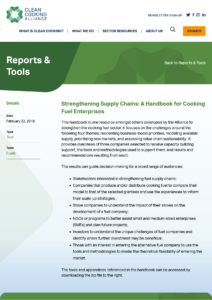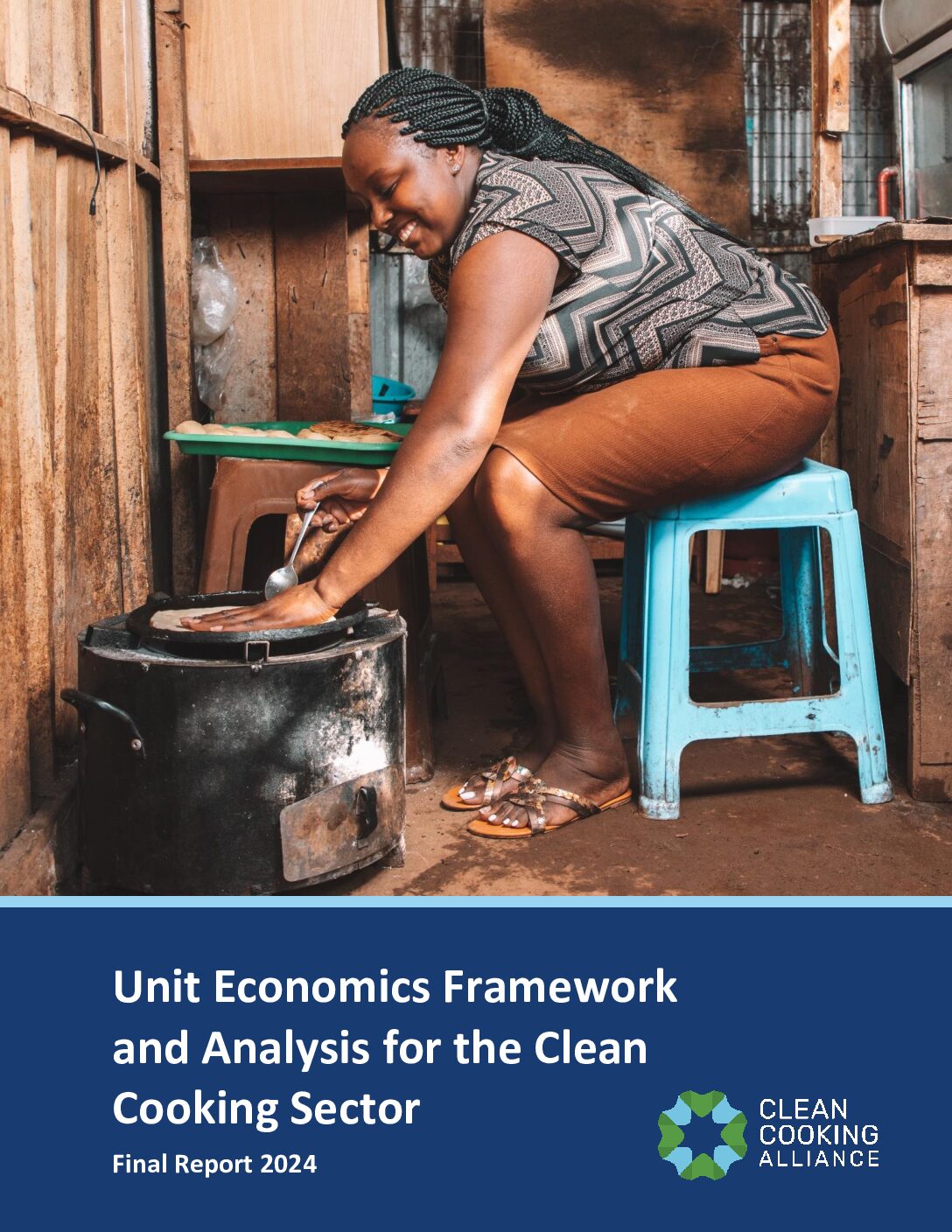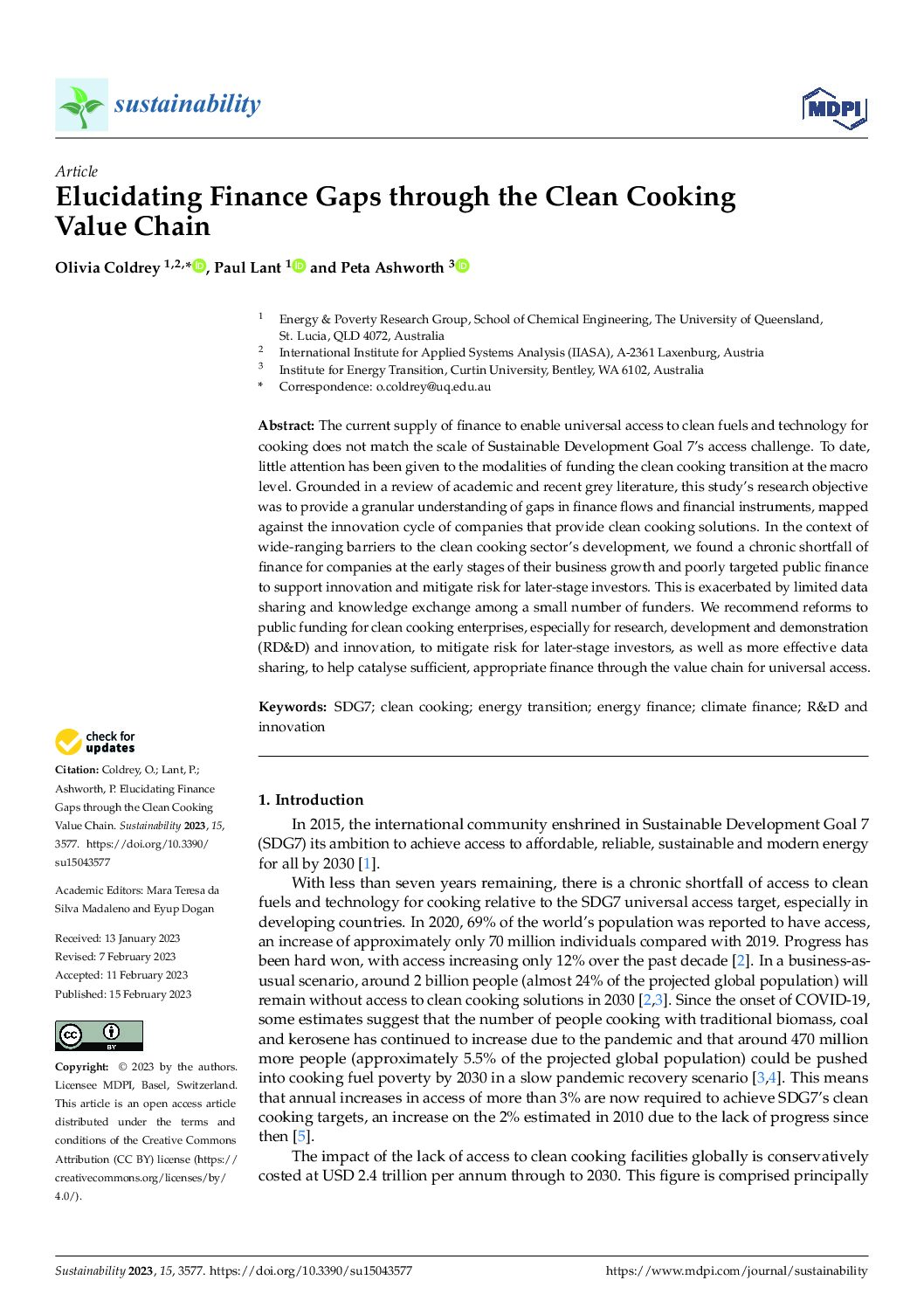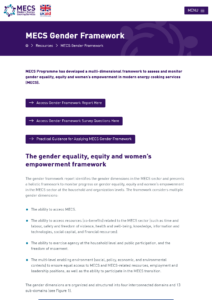This is an article by a company that offers solutions to offset the emissions generated by online shopping. It provides a quick and basic guide for companies on how to start generating and selling carbon credits.
This paper models the impact on climate and emissions of Tanzania’s clean cooking targets.
This report provides background information and guidance on the types of behavioural changes needed to advance access to clean cooking, and ways to promote these changes.
This handbook focuses on the following supply chain challenges in clean cooking: reorienting business model priorities, modeling available supply, prioritizing new markets, and assessing value chain sustainability.
This report highlights evdience on key unit economics drivers for clean cooking, with the aim to better articulate the value of clean cooking, reduce transaction costs, support actors across the ecosystem to capitalize on commercial and impact opportunities, and ultimately unlock more investment capital for the sector.
This study identifies gaps in clean cooking financing and recommends reforms to public funding for clean cooking enterprises, especially for research, development and demonstration (RD&D) and innovation, to mitigate risk for later-stage investors, as well as more effective data sharing.
This document introduces measurement, reporting, and verification (MRV) approaches and recommendations as they apply to cooking energy interventions. It is intended for any professional involved in the planning, execution, or funding of clean cooking energy programs and projects that aim to reduce climate-harming emissions.
This page presents all relevant materials for the adoption of a multi-dimensional framework to assess and monitor gender equality, equity and women’s empowerment in modern energy cooking services (MECS).





